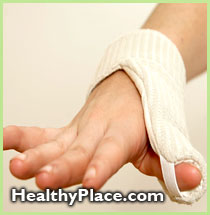
Detailed information on dietary supplements - what they are, how they're used, and safe use of dietary supplements.
On this page
Introduction
Dietary supplements are a topic of great public interest. Whether you are in a store, using the Internet, or talking to people you know, you may hear about supplements and claims of benefits for health. How do you find out whether "what's in the bottle" is safe to take and whether science has proven that the product does what it claims? This fact sheet provides some answers.
Questions and Answers
- What are dietary supplements?
- Why do people take supplements?
- Is using supplements considered conventional medicine or complementary and alternative medicine (CAM)?
- How can I get science-based information on a supplement?
- If I am interested in using a supplement as CAM, how can I do so most safely?
- I see the word "natural" on a lot of supplement labels. Does "natural" always mean "safe"?
- Does the Federal Government regulate supplements?
- Is NCCAM supporting research on supplements?
1. What are dietary supplements?
Dietary supplements (also called nutritional supplements, or supplements for short) were defined in a law passed by Congress in 1994 (see the box below).1, 2
Dietary Supplements...
- Are taken by mouth.
- Contain a "dietary ingredient" intended to supplement the diet. Examples of dietary ingredients include vitamins, minerals, herbs* (as single herbs or mixtures), other botanicals, amino acids, and dietary substances such as enzymes and glandulars.
- Come in different forms, such as tablets, capsules, softgels, gelcaps, liquids, and powders.
- Are not represented for use as a conventional food or as a sole item of a meal or the diet.
- Are labeled as being a dietary supplement.
* Linked terms are defined at the end of this fact sheet.
Dietary supplements are sold in grocery, health food, drug, and discount stores, as well as through mail-order catalogs, TV programs, the Internet, and direct sales.
References
2. Why do people take dietary supplements?
People take supplements for many reasons. A scientific study on this topic was published in 2002.3 In it, over 2,500 Americans reported on supplements they used (given the categories of vitamins/minerals and herbal products/natural supplements) and for what reasons. Their responses are summarized in the table below.
| Supplements: Why Taken? * |
|---|
Vitamins/
Minerals | % of
Responses | Herbals/
Supplements | % of
Responses |
|---|
| Health/good for you | 35 | Health/good for you | 16 |
| Dietary supplement | 11 | Arthritis | 7 |
| Vitamin/mineral supplement | 8 | Memory improvement | 6 |
| Prevent osteoporosis | 6 | Energy | 5 |
| Physician recommended | 6 | Immune booster | 5 |
| Prevent colds/influenza | 3 | Joint | 4 |
| Don't know/no reason specified | 3 | Supplement diet | 4 |
| Immune booster | 2 | Sleep aid | 3 |
| Recommended by friend/family/media | 2 | Prostate | 3 |
| Energy | 2 | Don't know/no reason specified | 2 |
| All others | 22 | All others | 45 |
* Adapted from Kaufman DW, Kelly JP, Rosenberg L, et al. Recent patterns of medication use in the ambulatory adult population of the United States: the Slone survey. Journal of the American Medical Association. 2002;287(3):337-344. Copyright © 2002, American Medical Association. All rights reserved.
3. Is using supplements considered conventional medicine or complementary and alternative medicine (CAM)?
Some uses of dietary supplements have become part of conventional medicine (see box below). For example, scientists have found that the vitamin folic acid prevents certain birth defects, and a regimen of vitamins and zinc can slow the progression of the eye disease age-related macular degeneration.
On the other hand, some supplements are considered to be complementary and alternative medicine (CAM)--either the supplement itself or one or more of its uses. An example of a CAM supplement would be an herbal formula that claims to relieve arthritis pain, but has not been proven to do so through scientific studies. An example of a CAM use of a supplement would be taking 1,000 milligrams of vitamin C per day to prevent or treat a cold, as the use of large amounts of vitamin C for these purposes has not been proven.
References
Conventional Medicine
Conventional medicine is medicine as practiced by holders of M.D.(medical doctor) or D.O. (doctor of osteopathy) degrees and by their allied health professionals, such as nurses, physical therapists, and dietitians. Other terms for conventional medicine include allopathy; Western, mainstream, orthodox, and regular medicine; and biomedicine.
Complementary and Alternative Medicine (CAM)
Health care practices and products that are not presently considered to be part of conventional medicine are called CAM. Complementary medicine is used together with conventional medicine. Alternative medicine is used in place of conventional medicine. There is scientific evidence for the effectiveness of some CAM treatments. But for most, there are key questions yet to be answered through well-designed scientific studies, such as whether they are safe and work for the diseases or conditions for which they are used. The National Center for Complementary and Alternative Medicine (NCCAM), part of the National Institutes of Health (NIH), is the Federal Government's lead agency for scientific research on CAM.
4. How can I get science-based information on a supplement?
There are several ways to get information on supplements that is based on the results of rigorous scientific testing, rather than on testimonials and other unscientific information.
- Ask your health care provider. Even if your provider does not happen to know about a particular supplement, he can access the latest medical guidance about its uses and risks.
- Dietitians and pharmacists also have helpful information.
- You can find out yourself whether there are any scientific research findings on the CAM supplement you are interested in. NCCAM and other Federal agencies have free publications, clearinghouses, and databases with this information (see "For More Information").
5. If I am interested in using a supplement as CAM, how can I do so most safely?
Here are some points to keep in mind:
References
Supplements and Drugs Can Interact
For example5:
-
St. John's wort can increase the effects of prescription drugs used to treat depression. It can also interfere with drugs used to treat HIV infection, to treat cancer, for birth control, or to prevent the body from rejecting transplanted organs.
-
Ginseng can increase the stimulant effects of caffeine (as in coffee, tea, and cola). It can also lower blood sugar levels, creating the possibility of problems when used with diabetes drugs.
-
Ginkgo, taken with anticoagulant or antiplatelet drugs, can increase the risk of bleeding. It is also possible that ginkgo might interact with certain psychiatric drugs and with certain drugs that affect blood sugar levels.
6. I see the word "natural" on a lot of supplement labels. Does "natural" always mean "safe"?
There are many supplements, as well as many prescription drugs, that come from natural sources and are both useful and safe. However, "natural" does not always mean "safe" or "without harmful effects." For example, consider mushrooms that grow in the wild--some are safe to eat, while others are poisonous.
The FDA issues warnings about supplements that pose risks to consumers, including those used for CAM therapies. A sample list is in the box below. The FDA found these products of concern because they:
- Could damage health--in some cases severely.
- Were contaminated--with other unlabeled herbs, pesticides, heavy metals, or prescription drugs.
- Interacted dangerously with prescription drugs.
Examples of Supplements That Have Carried FDA Cautions About Safety6,7
- Ephedra
- Kava
- Some "dieter's teas"
- GHB (gamma hydroxybutyric acid), GBL (gamma butyrolactone), and BD (1,4-butanediol)
- L-tryptophan
- PC SPES and SPES
- Aristolochic acid
- Comfrey
- St. John's wort
- Certain products, marketed for sexual enhancement and claimed to be "natural" versions of the drug ,® which were found to contain an unlabeled drug (sildenafil or tadalafil).
7. Does the Federal Government regulate supplements?
Yes, the Federal Government regulates supplements through the FDA. Currently, the FDA regulates supplements as foods rather than drugs. In general, the laws about putting foods (including supplements) on the market and keeping them on the market are less strict than the laws for drugs. Specifically:
- Research studies in people to prove a supplement's safety are not required before the supplement is marketed, unlike for drugs.
- The manufacturer does not have to prove that the supplement is effective, unlike for drugs. The manufacturer can say that the product addresses a nutrient deficiency, supports health, or reduces the risk of developing a health problem, if that is true. If the manufacturer does make a claim, it must be followed by the statement "This statement has not been evaluated by the Food and Drug Administration. This product is not intended to diagnose, treat, cure, or prevent any disease."
- The manufacturer does not have to prove supplement quality. Specifically:
- The FDA does not analyze the content of dietary supplements.
- At this time, supplement manufacturers must meet the requirements of the FDA's Good Manufacturing Practices (GMPs) for foods. GMPs describe conditions under which products must be prepared, packed, and stored. Food GMPs do not always cover all issues of supplement quality. Some manufacturers voluntarily follow the FDA's GMPs for drugs, which are stricter.
- Some manufacturers use the term "standardized" to describe efforts to make their products consistent. However, U.S. law does not define standardization. Therefore, the use of this term (or similar terms such as "verified" or "certified") does not guarantee product quality or consistency.
- If the FDA finds a supplement to be unsafe once it is on the market, only then can it take action against the manufacturer and/or distributor, such as by issuing a warning or requiring the product to be removed from the marketplace.
References
In March 2003, the FDA published new proposed guidelines for supplements that would require manufacturers to avoid contaminating their products with other herbs, pesticides, heavy metals, or prescription drugs. The guidelines would also require supplement labels to be accurate. These new guidelines could take effect as early as 2004.
The Federal Government also regulates supplement advertising, through the Federal Trade Commission. It requires that all information about supplements be truthful and not mislead consumers.
What's in the Bottle Does Not Always Match What's on the Label
A supplement might:
- Not contain the correct ingredient (plant species). For example, one study that analyzed 59 preparations of echinacea found that about half did not contain the species listed on the label.8
- Contain higher or lower amounts of the active ingredient. For example, an NCCAM-funded study of ginseng products found that most contained less than half the amount of ginseng listed on their labels.9
- Be contaminated (as discussed in Question 6).
8. Is NCCAM supporting research on supplements?
Yes, NCCAM is funding most of the nation's current research aimed at increasing scientific knowledge about supplements--including whether they work; if so, how they work; and how purer and more standardized products could be developed. Among the substances that researchers are studying are:
- Yeast-fermented rice, to see if it can lower cholesterol levels in the blood
- Soy, to see if it slows the growth of tumors
- Ginger and turmeric, to see if they can reduce inflammation associated with arthritis and asthma
- Chromium, to better understand its biological effects and impact upon insulin in the body, possibly offering new pathways to treating type 2 diabetes
- Green tea, to find out if it can prevent heart disease
NCCAM is also sponsoring or cosponsoring clinical trials on supplements, including:
- Glucosamine hydrochloride and chondroitin sulfate, to find out if they relieve knee pain from osteoarthritis
- Black cohosh, to see if it reduces hot flashes and other symptoms of menopause
- Echinacea, to see if it shortens the length or lessens the severity of colds in children
- Garlic, to find out if it can lower moderately high cholesterol levels
- Ginkgo biloba, to determine whether it prevents or delays decline in cognitive (thinking) function in people aged 85 or older
- Ginger, to confirm whether it eases nausea and vomiting after cancer chemotherapy
Definitions
Amino acid: Building block of proteins.
Botanical: See "herb." "Botanical" is a synonym for "herb."
Clinical trials: Research studies in which a treatment or therapy is tested in people to see whether it is safe and effective.
Depression: An illness that involves the body, mood, and thoughts. The symptoms of depression often include feelings of sadness, hopelessness, or pessimism; and changes in sleep, appetite, and thinking.
Enzymes: Proteins that speed up chemical reactions in the body.
Glandulars: Dietary ingredients or supplements that are made from the glands of animals.
References
Heavy metals: A class of metals that, in chemical terms, have a density at least five times that of water. They are widely used in industry. A few examples of heavy metals that are toxic and have contaminated some dietary supplements are lead, arsenic, and mercury.
Herb: A plant or plant part that is used for its flavor, scent, and/or therapeutic properties.
Peer reviewed: Reviewed before publication by a group of experts in the same field.
Testimonials: Information provided by individuals who claim to have been helped or cured by a particular product. The information provided lacks the necessary elements to be evaluated in a rigorous and scientific manner and is not used in the scientific literature.
For More Information
NCCAM Clearinghouse
Toll-free in the U.S.: 1-888-644-6226; 1-888-644-6226
International: 301-519-3153
TTY (for deaf or hard-of-hearing callers): 1-866-464-3615
E-mail: info@nccam.nih.gov
NCCAM Web site: http://nccam.nih.gov
Address: NCCAM Clearinghouse,
P.O. Box 7923, Gaithersburg, MD 20898-7923
Fax: 1-866-464-3616
Fax-on-Demand service: 1-888-644-6226
U.S. Food and Drug Administration (FDA)
The FDA monitors--and regulates for safety--foods, medicines, medical devices, cosmetics, and radiation-emitting consumer products.
Center for Food Safety and Applied Nutrition (CFSAN)
Web site: www.cfsan.fda.gov
Toll-free in the U.S.: 1-888-723-3366
CFSAN oversees the safety and labeling of supplements, foods, and cosmetics. Publications include "Tips for the Savvy Supplement User: Making Informed Decisions and Evaluating Information."
- MedWatch
Web site: www.fda.gov/medwatch/report/consumer/consumer.htm
Toll-free in the U.S.: 1-888-463-6332 MedWatch is the FDA's safety information and adverse event reporting program. Consumers or health care providers may file a report on a serious problem that they suspect is associated with a dietary supplement by following instructions available through the Web site or phone number above.
Federal Trade Commission (FTC)
Web site: www.ftc.gov
Toll-free in the U.S.: 1-877-382-4357
The FTC is a Federal agency that works to maintain a competitive marketplace for both consumers and businesses. Its has publications for consumers about supplements, including " 'Miracle' Health Claims: Add a Dose of Skepticism."
Office of Dietary Supplements (ODS), NIH
Web site: http://ods.od.nih.gov
The ODS supports research and disseminates research results in the area of dietary supplements. It produces the International Bibliographic Information on Dietary Supplements (IBIDS) database on the Web, which contains citations to and abstracts (brief summaries) of peer-reviewed scientific literature on dietary supplements; go to dietary-supplements.info.nih.gov and select "Health Information." ODS's information is offered through its Web site only.
CAM on PubMed
Web site: www.nlm.nih.gov/nccam/camonpubmed.html
CAM on PubMed, a database on the Web developed jointly by NCCAM and the National Library of Medicine, offers citations to (and in most cases, abstracts of) articles in scientifically based, peer-reviewed journals on complementary and alternative medicine. Most citations include abstracts, and some link to the full text of articles.
The Cochrane Library
Web site: www.cochrane.org/reviews/clibintro.htm
The Cochrane Library is a collection of science-based reviews from the Cochrane Collaboration, an international nonprofit organization that seeks to provide "up-to-date, accurate information about the effects of health care." Its authors analyze the results of rigorous clinical trials on a given topic and prepare summaries called systematic reviews. Abstracts of these reviews can be read on the Web without charge. You can search by treatment name (such as the name of an herb) or medical condition. Subscriptions to the full text are offered at a fee and are carried by some libraries.
References
1. Dietary Supplement Health and Education Act of 1994. Food and Drug Administration Web site. Accessed at www.fda.gov/opacom/laws/dshea.html on April 14, 2003.
2. Dietary supplements: overview. U.S. Food and Drug Administration, Center for Food Safety and Applied Nutrition Web site. Accessed at www.cfsan.fda.gov/~dms/supplmnt.html on August 20, 2003.
3. Kaufman DW, Kelly JP, Rosenberg L, et al. Recent patterns of medication use in the ambulatory adult population of the United States: the Slone survey. Journal of the American Medical Association. 2002;287(3):337-344.
4. Federal Trade Commission. Promotions for kids' dietary supplements leave sour taste. Federal Trade Commission Web site. Accessed at http://www.ftc.gov/opa/2004/06/kidsupp.shtm on May 2, 2003.
5. Natural Medicines Comprehensive Database. Natural Medicines Comprehensive Database Web site. Accessed at http://naturaldatabase.com on August 20, 2003.
6. MedWatch: the FDA safety information and adverse event reporting program. U.S. Food and Drug Administration Web site. Accessed at www.fda.gov/medwatch on August 20, 2003.
7. Dietary supplements: warnings and safety information. U.S. Food and Drug Administration, Center for Food Safety and Applied Nutrition Web site. Accessed at www.cfsan.fda.gov/~dms/ds-warn.html on April 14, 2003.
8. Gilroy CM, Steiner JF, Byers T, et al. Echinacea and truth in labeling. Archives of Internal Medicine. 2003;163(6):699-704.
9. Harkey MR, Henderson GL, Gershwin ME, et al. Variability in commercial ginseng products: an analysis of 25 preparations. American Journal of Clinical Nutrition. 2001;73(6):1101-1106.
NCCAM has provided this material for your information. It is not intended to substitute for the medical expertise and advice of your primary health care provider. We encourage you to discuss any decisions about treatment or care with your health care provider. The mention of any product, service, or therapy in this information is not an endorsement by NCCAM.
next: Dietary Supplement: Folate
 You are saddened, hurt and angry that you have put so much energy into yet another relationship, given unselfishly of yourself to one more wounded soul. And now that she is nourished, comforted, and healed, she's walked out of your life, abandoned you. I watch this strong woman whom I have come to care deeply about weep bitter tears. As is so often the case when I am with you, I am once again at a loss. Words of comfort seem inadequate just now. I have only my compassion and understanding to offer. I sit quietly for a time, holding you in my heart.
You are saddened, hurt and angry that you have put so much energy into yet another relationship, given unselfishly of yourself to one more wounded soul. And now that she is nourished, comforted, and healed, she's walked out of your life, abandoned you. I watch this strong woman whom I have come to care deeply about weep bitter tears. As is so often the case when I am with you, I am once again at a loss. Words of comfort seem inadequate just now. I have only my compassion and understanding to offer. I sit quietly for a time, holding you in my heart.
 Magnetic Therapy, Electroconvulsive Therapy and Acupuncture are reviewed here as experimental procedures for bipolar disorder.
Magnetic Therapy, Electroconvulsive Therapy and Acupuncture are reviewed here as experimental procedures for bipolar disorder.
